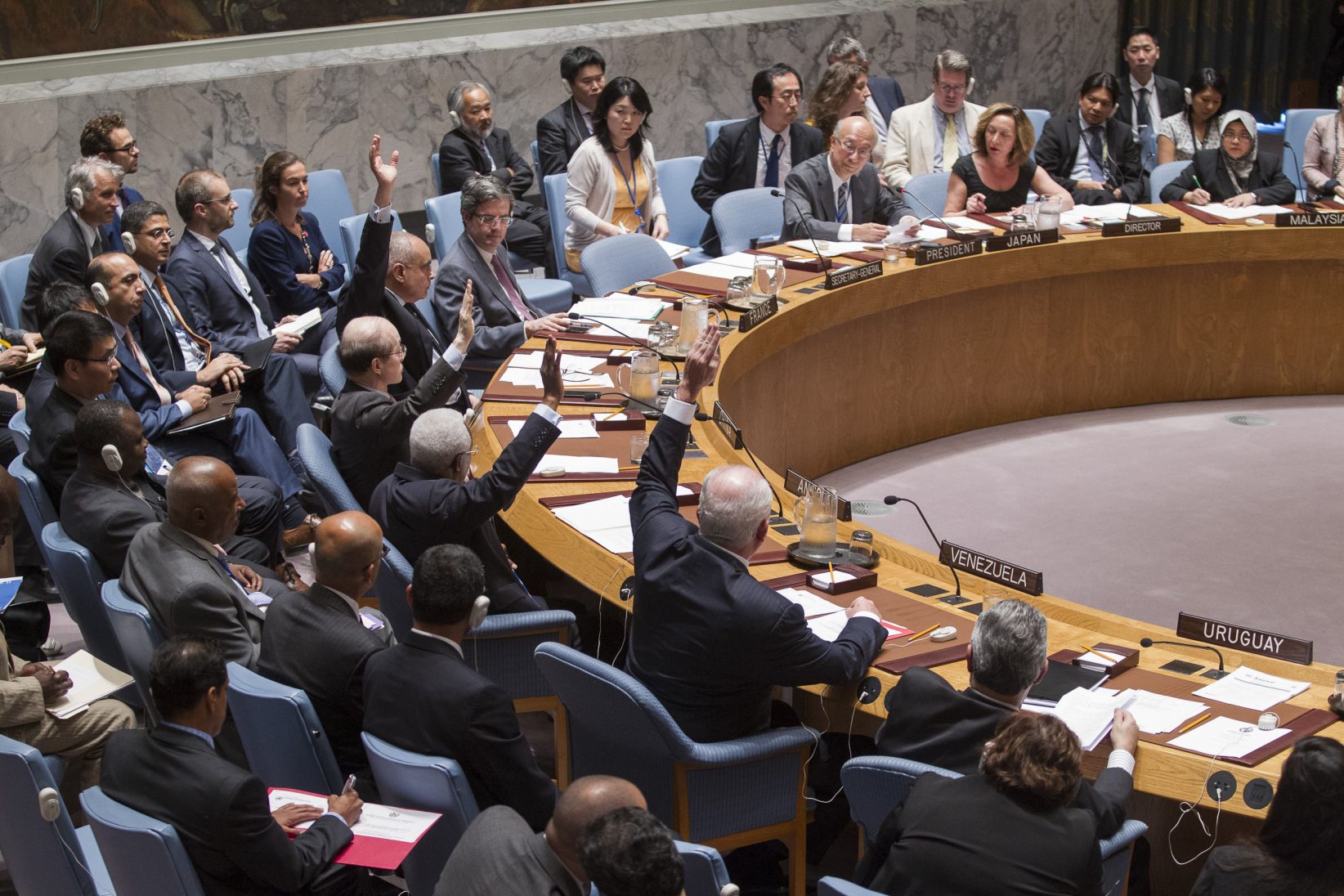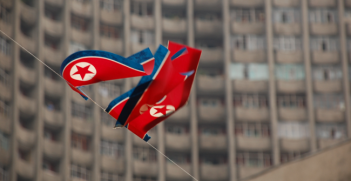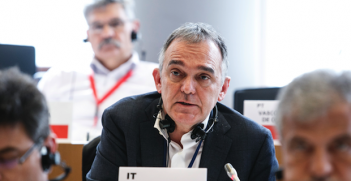UN Security Council Needs More Elected Members

Following the Australian government’s decision not to nominate former prime minister Kevin Rudd for the role of United Nations secretary-general, attention is focussing on those candidates left in the running for the top UN job and their possible influence on the organisation’s future. But in the shadow of the high-profile UNSG polling, less well-known efforts are underway to reform the composition of the UN Security Council, which may have a greater long-term impact.
In one of the most eagerly anticipated rulings in recent years, the Hague-based Permanent Court of Arbitration (PCA) delivered an unexpectedly tough rebuff to a suite of Chinese claims on the maritime territorial disputes in the South China Sea. It based its decision on the UN Convention on the Law of the Sea (UNCLOS). The PCA is part of the United Nations system and, as its name indicates, so is UNCLOS. The Philippines had brought the dispute to the PCA in a successful effort to use international law and UN arbitration as instruments to redress power asymmetries in bilateral disputes.
Such efforts could be institutionalised further if states implement reform efforts currently under negotiations to overhaul the UN Security Council (UNSC). In preparation for the selection of the next secretary-general, the UN General Assembly has shown unprecedented activism in bringing greater transparency to the process and organising public sessions for all candidates to present their visions and respond to questions. Less well known but potentially more consequential are the efforts to rebalance the UNSC-assembly relationship by changing the numbers and tenure of the council’s 10 elected members (E10).
Because the UNSC is the geopolitical cockpit of the UN system, most attention on UN reforms has focused on the misalignment of its five permanent members (P5) with evolving global power equations. Yet two-thirds of council members are elected, and the potential utility of the 10 elected members (E10) in revitalising the council as an effective executive body is surprisingly neglected.
As the PCA judgment shows, the UN remains crucial for setting standards and norms to regulate interstate behaviour. Yet, despite disagreements over the reasons for it, few can claim the world organisation is presently fit for purpose. Hence the urgency of reform.
There seems no realistic prospect of structural reform of the permanent membership in the foreseeable future. But equally, there is no realistic substitute in the foreseeable future for the UNSC as a universally validated body acting on behalf of the international community. Hence the importance of reform.
As an escape from the trap of these two red lines of political reality, the UNSC non-permanent membership should be reformed by extending the E10 term from two to three years and enlarging their numbers from 10 to 18. This may be more defensible in principle and also less challenging to achieve.
The change most likely to attract support from the necessary two-thirds of the UN members—without the opposition of P5 governments—is enlargement of the council with only additional elected members because, unlike the case with permanent membership enlargement, in this case most countries are winners not losers. Increasing the number of elected members would mitigate the pathology of P5 dominance of council affairs, and utilise the much broader range of skills and assets available from among the other 188 members. Increasing the proportion of elected members would strengthen the UNSC’s representivity, and also increase its democratic accountability.
Many elected members have proven capacity to represent the interests of the other members and add to the council’s equity, legitimacy, and effectiveness. Brazil made considerable headway with its 2011 proposal, Responsibility while Protecting, in response to the criticism of NATO for exceeding the Resolution 1973 mandate to protect civilians in Libya.
Germany orchestrated the division of sanctions regimes applied to the Taliban and al-Qaeda which previously had been lumped together despite their wide differences; used its two presidencies in 2011–12 to promote debate about the security implications of climate change; and sponsored a resolution on children and armed conflict.
During 2013–14, Australia was actively engaged on Afghanistan, humanitarian relief for Syria, the shooting down of Malaysian Airlines Flight MH17 over Ukraine, management of small arms and light weapons, and the use of police in peacekeeping and human rights in North Korea.
Their experience confirms that, notwithstanding structural constraints compared to the P5, elected members can exert significant influence if their mission is adequately funded and their diplomats are skilfully engaged, innovative, and seek to cooperate pragmatically with other council members, elected and permanent.
Expanding the number of elected members could enable the council to become more equitably and effectively representative of the UN membership, ensure that a wider range of issues and perspectives are included in debates, and harness a greater range of assets and skill sets to the critical work of the Council.
If the number of elected members were expanded by eight, and their terms increased to three years, then six new members would be elected each year. This would strengthen the relative power of elected members: and the reputational cost to China of obstructing efforts to enforce the PCA ruling would be higher in opposing 22 instead of 14 other UNSC members. The E18 would collectively also outnumber the P5 by 3.6:1 instead of 2:1. The council would be more difficult for one, three, or even five permanent members to control. Even if all the P5 agreed, they would require nine, not four, elected members to obtain the 60 per cent majority needed for a resolution to be adopted.
Three-year terms would enhance the capacity for elected members to make a substantial contribution. Though meetings would take longer, more regions and issues would be directly represented. The risk of conflicts that deserve attention being neglected would decline. The probability of broad support would be increased with the specification of a fair regional distribution of the elected seats.
In sum, structural reform by enlarging the number of elected members would strengthen legitimacy, improve accountability and increase the council’s capacity to fulfil its responsibilities for the maintenance of international peace and security. The PCA ruling confirms the need; this article shows the way.
Ramesh Thakur is professor in the Crawford School of Public Policy, Australian National University and a former United Nations assistant secretary-general. The second edition of his book The United Nations, Peace and Security is to be published by Cambridge University Press later this year.
John Langmore is a professorial fellow in the School of Social and Political Sciences at the University of Melbourne. He was previously an Australian member of parliament and a director in the UN Secretariat.
The article draws on extracts from a longer article published last month in The Washington Quarterly (available at http://www.tandfonline.com/doi/pdf/10.1080/0163660X.2016.1204412).





